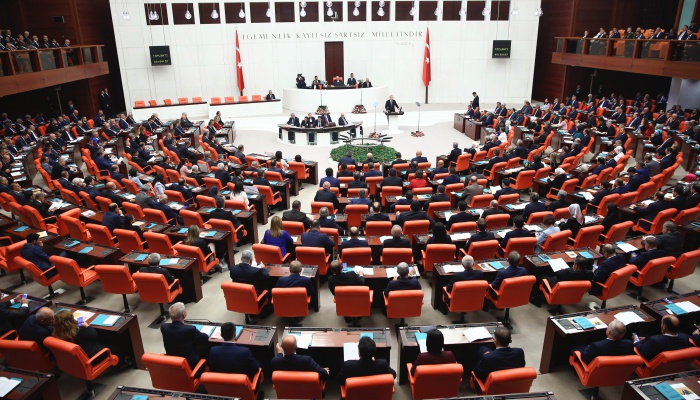Turkey’s parliament has authorized sending troops to Libya to help the UN-supported government in Tripoli battle forces loyal to a rival government, The Associated Press reported.
Turkish lawmakers voted 325-184 at an emergency session on Thursday in favor of allowing a one-year mandate to deploy troops.
The Republican People’s Party (CHP), İYİ (Good) Party, and Felicity Party (SP) voted against the motion, although they previously backed a motion allowing the deployment of troops to northern Syria.
The Kurdish Peoples’ Democratic Party (HDP) also opposed the motion.
There are concerns that Turkish forces could aggravate the conflict in Libya. But Ankara says the deployment may be needed for Turkey to safeguard its interests in Libya and in the eastern Mediterranean.
The motion allows the government to decide on the scope, strength and timing of any mission by Turkish troops. Turkish Vice President Fuat Oktay told the state-run Anadolu news agency that Turkey would send “the necessary number [of troops] whenever there is a need.”
The Tripoli-based government of Libyan Prime Minister Fayez Sarraj has faced an offensive by the rival regime in the east and commander Gen. Khalifa Hafter. The fighting has threatened to plunge Libya into violent chaos rivaling the 2011 conflict that ousted and killed longtime dictator Moammar Gadhafi.
Turkish President Recep Tayyip Erdoğan said last month that Sarraj requested the Turkish deployment after he and Sarraj signed a military deal that allows Ankara to dispatch military experts and personnel to Libya. That deal, along with a separate agreement on maritime boundaries between Turkey and Libya, has drawn ire across the region and beyond.
Ankara says the deployment is vital for Turkey to safeguard its interests in Libya and in the eastern Mediterranean, where it finds itself increasingly isolated as Greece, Cyprus, Egypt and Israel have established exclusive economic zones paving the way for oil and gas exploration.

